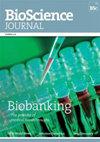自闭症谱系障碍和唐氏综合征患者护理者的主观口腔健康指标的初步研究
IF 0.6
4区 农林科学
Q3 AGRICULTURE, MULTIDISCIPLINARY
引用次数: 0
摘要
本研究旨在探讨自闭症谱系障碍(ASD)和唐氏综合症患者护理人员的主观口腔健康指标。这项横断面研究包括15名ASD(n=7)和唐氏综合症(n=8)患者的护理人员。收集社会形态图数据、连贯感(SOC)(SOC-13量表)、社会支持(社会支持量表[MOS-SSS])、口腔健康相关生活质量(OHRQoL)(OHIP-14)和以5分Likert量表评估的自评口腔健康。除相关分析(Spearman相关系数)外,还进行了描述性分析。大多数主要照顾者是个人的父母(86.6%)。照顾者的年龄在40至59岁之间(60%)。大多数护理人员受过9至11年的教育(53.3%)。ASD护理人员的家庭月收入低于186,28美元(57.2%),唐氏综合症护理人员的月收入在327,56美元至931,40美元之间(50%)。在护理人员中,33.3%的人报告口腔健康状况良好,33.3%报告既不好也不坏。SOC、社会支持和OHRQoL的平均得分分别为48.9、69.3和10.9。家庭收入越高,OHRQoL越好(rs=-0.62,p=0.014)。SOC与情感支持领域的得分相关(rs=0.54,p=0.039)。得出的结论是,照顾者具有较强的SOC和较高的感知支持。此外,照顾者对OHRQoL的影响并不高。更好地了解照顾者在照顾残疾人时的保护和应对因素可能会更好地提高他们的生活质量。本文章由计算机程序翻译,如有差异,请以英文原文为准。
Subjective oral health measures in caregivers of patients with autism spectrum disorder and down syndrome: a preliminary study
This study aimed to address the subjective oral health measures of caregivers of individuals with autism spectrum disorder (ASD) and Down syndrome. This cross-sectional study included 15 caregivers of individuals with ASD (n = 7) and Down syndrome (n = 8). Sociodemographic data, sense of coherence (SOC) (SOC-13 scale), social support (Social Support Scale [MOS-SSS]), oral health-related quality of life (OHRQoL) (OHIP-14), and self-rated oral health assessed on a 5-point Likert scale were collected. A descriptive analysis was performed in addition to correlation analyses (Spearman correlation coefficient). Most primary caregivers were parents of the individual (86.6%). The age of the caregivers ranged between 40 and 59 years (60%). Most caregivers have had 9 to 11 years of education (53.3%). Monthly family income was less than USD 186,28 for ASD caregivers (57.2%) and between USD 327,56 and USD 931,40 for Down syndrome caregivers (50%). Of the caregivers, 33.3% reported good oral health and 33.3% reported neither good nor bad. The average SOC score, social support and OHRQoL was 48.9, 69.3 and 10.9, respectively. The higher the family income, the better the OHRQoL (rs = -0.62, p = 0.014). SOC was correlated with the score of the emotional support domain (rs = 0.54, p = 0.039). It was concluded that caregivers had a strong SOC and high perceived support. Moreover, caregivers did not report a high impact on OHRQoL A better understanding of the caregivers’ protective and coping factors in caring for individuals with disabilities may better promote their quality of life.
求助全文
通过发布文献求助,成功后即可免费获取论文全文。
去求助
来源期刊

Bioscience Journal
Agricultural and Biological Sciences-General Agricultural and Biological Sciences
CiteScore
1.00
自引率
0.00%
发文量
90
审稿时长
48 weeks
期刊介绍:
The Bioscience Journal is an interdisciplinary electronic journal that publishes scientific articles in the areas of Agricultural Sciences, Biological Sciences and Health Sciences. Its mission is to disseminate new knowledge while contributing to the development of science in the country and in the world. The journal is published in a continuous flow, in English. The opinions and concepts expressed in the published articles are the sole responsibility of their authors.
 求助内容:
求助内容: 应助结果提醒方式:
应助结果提醒方式:


